Filter News
Area of Research
News Topics
- (-) Frontier (2)
- (-) Mercury (4)
- 3-D Printing/Advanced Manufacturing (12)
- Advanced Reactors (2)
- Artificial Intelligence (3)
- Big Data (5)
- Bioenergy (16)
- Biology (20)
- Biomedical (8)
- Biotechnology (3)
- Buildings (9)
- Chemical Sciences (8)
- Clean Water (6)
- Climate Change (14)
- Composites (2)
- Computer Science (12)
- Coronavirus (6)
- Critical Materials (1)
- Cybersecurity (6)
- Decarbonization (14)
- Energy Storage (14)
- Environment (36)
- Exascale Computing (2)
- Fusion (7)
- Grid (7)
- High-Performance Computing (8)
- Hydropower (2)
- Isotopes (8)
- ITER (1)
- Machine Learning (4)
- Materials (7)
- Materials Science (12)
- Mathematics (3)
- Microscopy (9)
- Nanotechnology (6)
- National Security (15)
- Net Zero (2)
- Neutron Science (8)
- Nuclear Energy (14)
- Physics (16)
- Polymers (5)
- Quantum Computing (1)
- Quantum Science (2)
- Security (6)
- Simulation (4)
- Summit (2)
- Sustainable Energy (13)
- Transportation (12)
Media Contacts
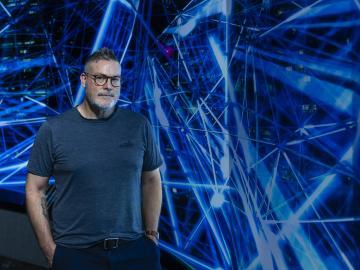
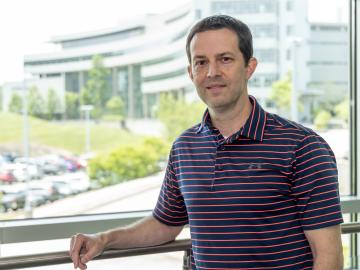
When reading the novel Jurassic Park as a teenager, Jerry Parks found the passages about gene sequencing and supercomputers fascinating, but never imagined he might someday pursue such futuristic-sounding science.
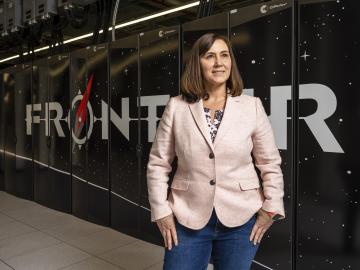
At the National Center for Computational Sciences, Ashley Barker enjoys one of the least complicated–sounding job titles at ORNL: section head of operations. But within that seemingly ordinary designation lurks a multitude of demanding roles as she oversees the complete user experience for NCCS computer systems.
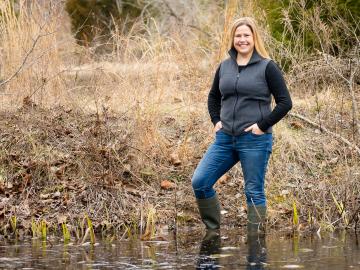
Spanning no less than three disciplines, Marie Kurz’s title — hydrogeochemist — already gives you a sense of the collaborative, interdisciplinary nature of her research at ORNL.
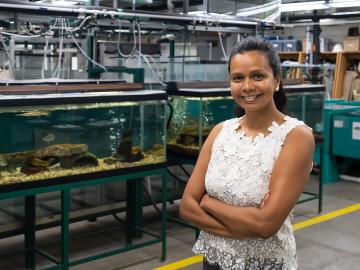
Moving to landlocked Tennessee isn’t an obvious choice for most scientists with new doctorate degrees in coastal oceanography.
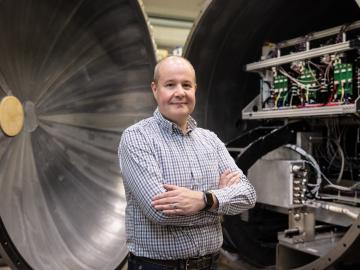
Sometimes solutions to the biggest problems can be found in the smallest details. The work of biochemist Alex Johs at Oak Ridge National Laboratory bears this out, as he focuses on understanding protein structures and molecular interactions to resolve complex global problems like the spread of mercury pollution in waterways and the food supply.




